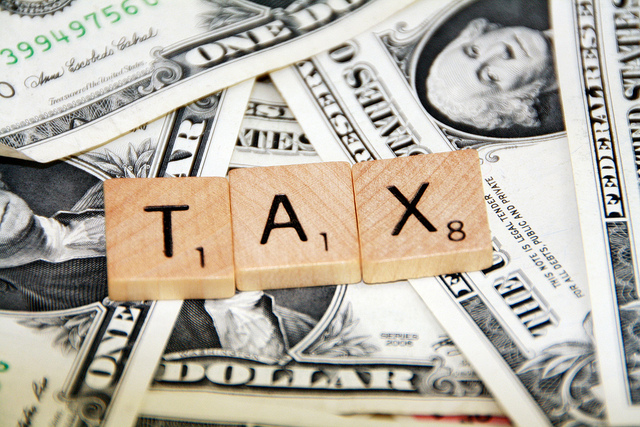By Dels. Jason Buckel and Haven Shoemaker
This week, the Maryland House of Delegates will take up a package of tax cuts proposed by the Democratic majority. Yes, you read that correctly. Some Maryland Democrats are advocating for tax cuts this year.
Notwithstanding the fact that our Democratic colleagues’ newfound appetite for tax cuts just happens to coincide with election year, this development is welcome news, and we anticipate bipartisan support for many of these measures.
The Democrats’ sales tax proposals exempt several products from the state’s sales tax, including diapers, baby products, oral hygiene products, diabetic care products, and medical equipment (thermometers, pulse oximeters, and blood pressure cuffs). Their income tax proposal creates a nonrefundable credit against the state income tax for up to 100% of the federal Work Opportunity Tax Credit claimed by an employer. This tax credit incentivizes employers to hire individuals who may face significant barriers to employment. Taken altogether, these tax proposals are estimated to return $95.4 million to Marylanders in Fiscal Year 2023.
In a high-tax state like Maryland, any tax relief is a good thing. However, the Democratic tax relief package is pretty weak tea when compared to the $4.6 BILLION budget surplus the state forecasts for the coming fiscal year. The total of the Democratic tax proposals equates to just 2% of the total budget surplus. While many legislators and their pet interest groups are all clamoring for a share of this massive surplus pie, it looks as though Maryland’s taxpayers are supposed to be satisfied with but a few little crumbs. We can, and should, do better.
Feeling the pinch
Marylanders are feeling the pinch under the Biden economy. Nationally, inflation rose 7.5% from January 2021 to January 2022 – the highest in 40 years. Consumer costs jumped significantly in the region from December 2020-December 2021. Food costs are up 9.1%. Energy costs are up 26.1%, with high gas prices (up 42.2%) largely contributing to the increase. New car prices are up 35%, used car prices are up 38%.
Ongoing supply chain issues and global unrest caused by Russia will not improve this situation anytime soon. Many Marylanders are also experiencing the significant of jumps in their property values – while they make gains in equity, increased assessments also mean higher property taxes. Our citizens need and deserve a break.
For years our House Republican Caucus has advocated for meaningful tax cuts for all Marylanders. There have been a myriad of excuses from the majority party as to why they are not feasible. Maryland has a $4.6 BILLION surplus this year and BILLIONS in surpluses projected over the next several years. There is no legitimate excuse to postpone true tax relief for Marylanders.
No excuse to postpone true tax relief
As Republicans, we have several proposals to provide wide-ranging tax relief for Marylanders.
Del. Susan Krebs, R-Carroll, is sponsoring House Bill 787, the Retiree Income Tax Relief Act of 2022, which exempts the first $55,000 of retirement income from taxation for Marylanders over 65. This bill would return $387.5 million per year to the pockets of Maryland’s retirees.
The Honoring Their Sacrifice Act of 2022 increases the maximum subtraction modification on retirement income for military and other community heroes from $15K to $50K and reduces the eligible age from 55 to 50 as well as exempting active-duty personnel from paying Maryland income tax during the time they are deployed. Sponsored by Del. Nino Mangione, R-Baltimore Co., this bill returns at least $27 million to Maryland’s bravest.
House Bill 144, sponsored by Del. Matt Morgan, R-St. Mary’s, eases some of the pressure at the gas pump, removing the inflation increases to Maryland’s gas tax and saving Maryland drivers $37.5 million this year.
Our caucus is also fighting for HB 839, a measure that reduces Maryland’s income tax brackets and allows for itemizing deductions, something that was taken away after federal tax reform in 2017. This bill reduces Marylander’s income taxes by $756 million this fiscal year. These four measures combined would save Maryland taxpayers $1.2 BILLION in Fiscal 2023. That’s 26% of the $4.6 billion budget surplus, not 2%.
We applaud our Democratic colleagues’ willingness to pursue tax relief measures, but they do not go far enough. If the Maryland General Assembly cannot give meaningful tax relief to the middle class, working families, and job creators of Maryland now, we never will.





Recent Comments